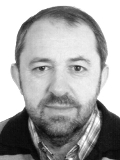GOTO is a vendor independent international software development conference with more that 90 top speaker and 1300 attendees. The conference cover topics such as .Net, Java, Open Source, Agile, Architecture and Design, Web, Cloud, New Languages and Processes
Helmut Kielburger, TweetChief Architect, Siemens AG

Biography: Helmut Kielburger
In this position Helmut is responsible for creating technical concepts and realizing architectures that scale up to handle large automation solutions. Helmut is working in the automation field since 25 years and has seen a lot of different design and implementation technologies within that time. That also includes programming in asm86, PLM86, C, Smalltalk, C++ and C#.
Presentation: TweetHow to evolve large scale systems
In this talk we demonstrate from both a process and a technical perspective the challenges of evolving a large automation platform based on .net towards extended capacity, scalability, and performance, as well as lo lower footprint. How to approach, schedule and perform the evolution under given time and resource constraints? How to limit the effect of platform changes to the to applications using it? What are the technical measures to actually meet the required enhancements, and how were they realized? And how to deal with the constraints and limitations of the underlying .net platform? The lessons learned from this talk help you in understanding the challenges of evolving large scale systems in general, and enable you to take the appropriate process and technical approaches in evolving your own systems.
Keywords: software evolution, capacity, footprint, .net, C#, C++
Audience: Architects, Senior Programmers
